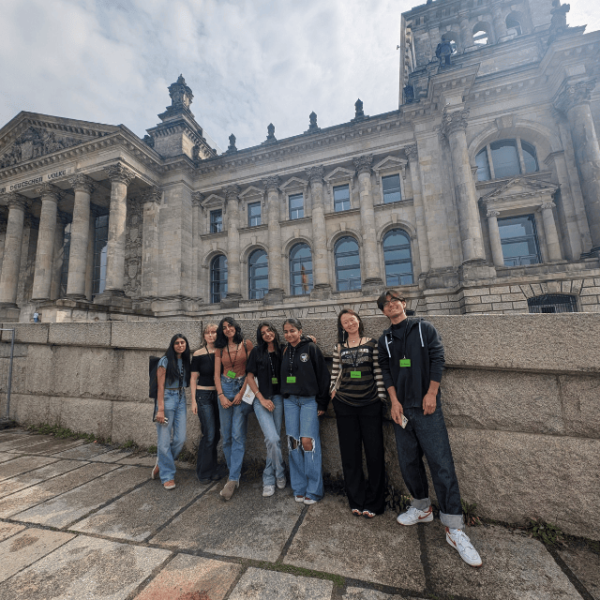
Amsterdam, Netherlands
International Criminal Justice
When:
06 July - 17 July 2026
Credits:
0 EC
Read more
Political Science Summer Course
When:
26 July - 23 August 2025
School:
Summer and Winter University FUBiS
Institution:
Freie Universität Berlin
City:
Country:
Language:
English
Credits:
6 EC
Fee:
1300 EUR

The course will introduce the basics of the European Union and describe and explain the processes of widening and deepening of this unique political entity. This will cover an overview of European Union history, its evolution in economic and political terms as well as of its institutional structure up to today. Since the EU in its current political structure is more than an international organization but less than a federal state it brings up a number of questions that we try to answer by using state philosophy, constitutional and legal theory, but also concepts of international relations.
Internal politics and policies, for example the decision-making process, the balance of power, questions about identity and democracy in this new system of governance will be discussed. We study the causes and effects of the war in Europe, its geopolitical dimension and how it affects policies and relations with neighbours and other parts of the world. Particularly important aspects include the geopolitical consequences of Russia’s war in Ukraine, the situation in the Middle East, relations with the UK after Brexit, the state of transatlantic relations after US presidential elections and how the EU is dealing with China’s and Russia’s alternative models of governance. We will discuss migration and the EU’s transformation into a fossil-free economy.
There is a broad canon of European topics to dive into. If students express specific interests in other topics or case studies, sessions can be adjusted. The interdisciplinary structure of this course poses an excellent opportunity for students to share a classroom with others from different academic disciplines and benefit from their perspectives, while also giving them the room to pursue topics of special interest. This can lead to an emphasis on the economic dimension of European integration, other times more space is given to external relations or European law issues, and in other years special emphasis is put on questions of identity and cultural aspects. Oral presentations are customized according to the individual background and interests of students.
The morning sessions consist of lectures, literature-based discussions and oral presentations from working groups. After lunch the course will visit various institutions in Germany`s political center. Students will have the chance to discuss the topics from the morning sessions with international experts from political institutions, embassies and think tanks.
Dr. Ulrich Brückner
Students from different countries, academic levels and backgrounds, who are generally interested in European integration will benefit from each other in an intercultural and interdisciplinary learning process. Former classes consisted of regular students and practitioners such as civil servants, communication experts, young politicians and even members of parliaments. The course does not require special knowledge about European politics, law, history or culture, but participants should be interested in more than just their field of specialization. In class participation, especially in the discussions with experts, is essential for the course success and plays an important role in grading.
Fee
1300 EUR, course fee
Fee
300 EUR, program fee
When:
26 July - 23 August 2025
School:
Summer and Winter University FUBiS
Institution:
Freie Universität Berlin
Language:
English
Credits:
6 EC

Amsterdam, Netherlands
When:
06 July - 17 July 2026
Credits:
0 EC
Read more

Colchester, United Kingdom
When:
16 February - 20 February 2026
Credits:
4 EC
Read more

Colchester, United Kingdom
When:
16 February - 20 February 2026
Credits:
4 EC
Read more